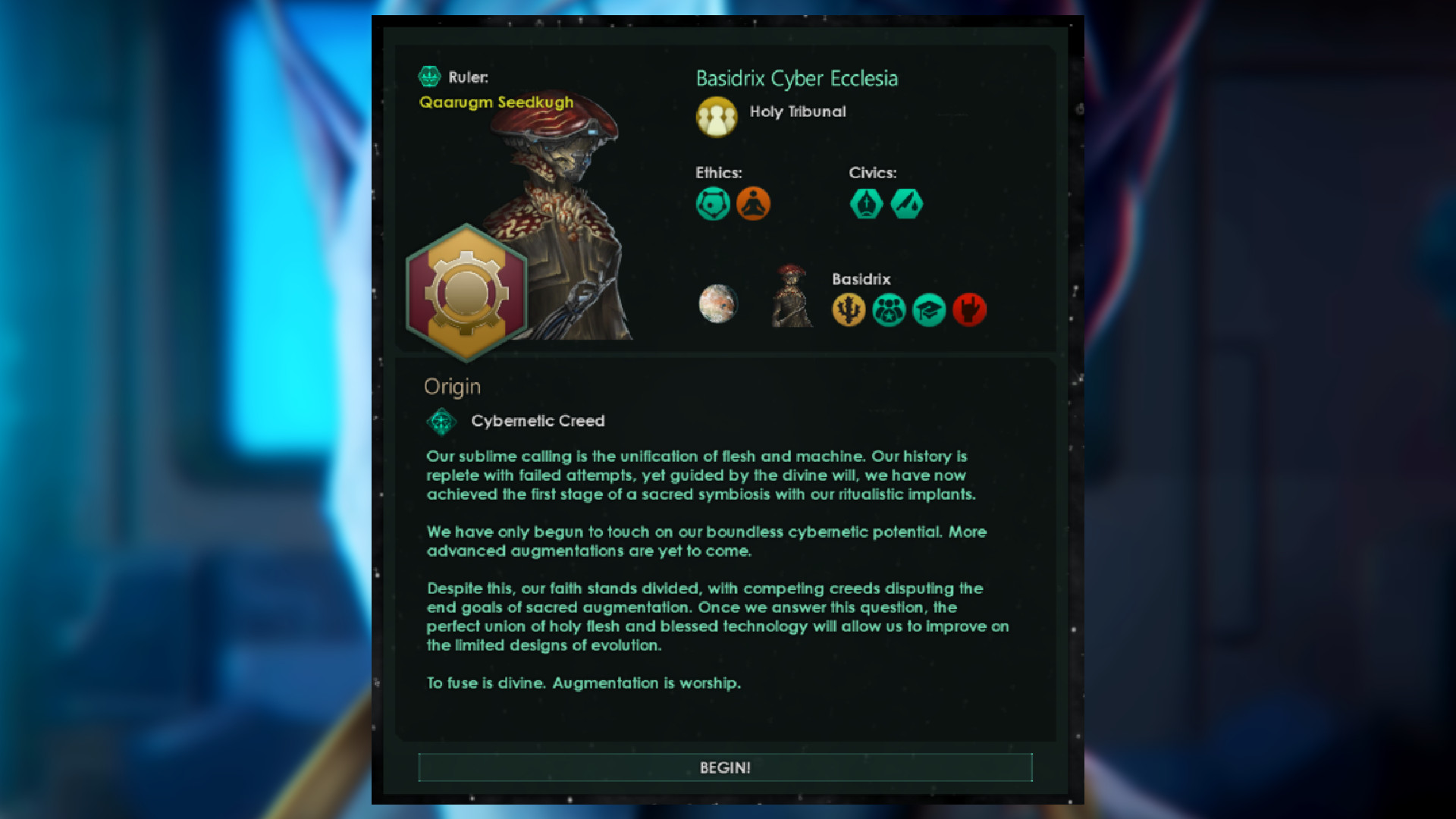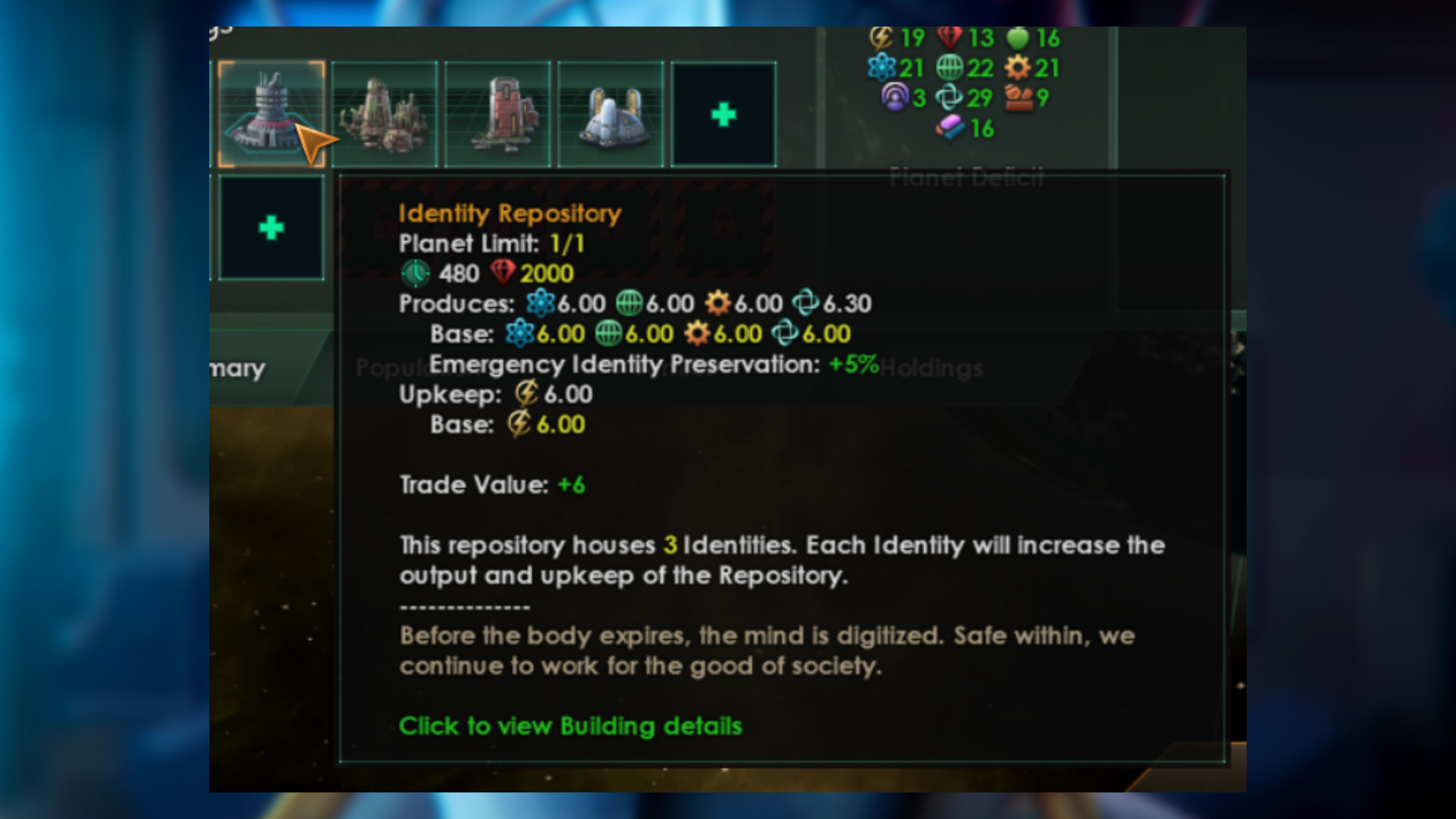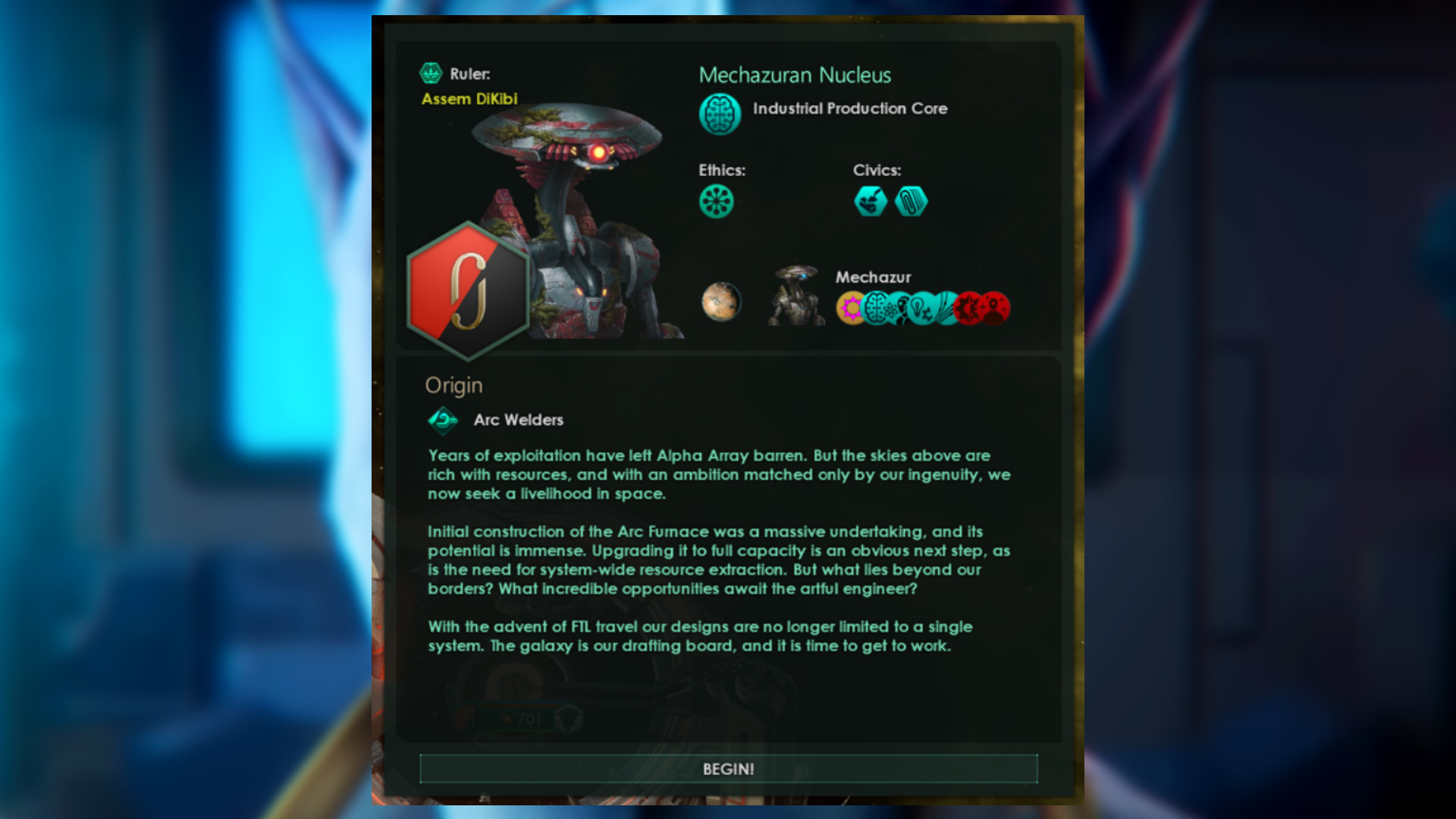Strategy game masters Paradox Interactive recently revealed its next big Stellaris DLC, a technology-driven expansion for Steam’s premier space-based grand strategy game. Stellaris The Machine Age will deliver hitherto untold technological expansion, including a new self-governing robot empire out in the far reaches of space, and the Crusader Kings 3 and Age of Wonders 4 developer details how its new origins and government authorities will work in the new add-on.
New Stellaris DLC The Machine Age is all about technological advancement, enhancement, and adaptation. That brings all of science fiction’s favorite ethical and social dilemmas to one of the best strategy games on PC, from the rise of synthetic consciousness and the rights it might deserve to the quandary of if and where robotic augmentation transcends a limit on what’s considered a biological species.
As your own faction and others grapple with these questions, out in the far reaches of the galaxy, a new robotic empire has appeared that boasts individualistic personalities and even its very own, democratically elected government. The face of Stellaris is about to change forever. Indeed, machine empires will no longer mandate the unified ‘gestalt consciousness’ ethos, and instead will be offered three new ascension paths.

At the center of the new content are three additional origins. The first of these is The Cybernetic Creed. These peoples see augmentation as their divine calling, and act as “a spiritualist fast track to cybernetics.” As such, you’re locked out of all but the Cybernetic Ascension path, and factions are replaced by a quartet of four creeds.
While they might all be unified in their ultimate purpose, the creeds will frequently be at odds with one another. “Often, you will be asked to make choices that will make one creed joyous at the expense of the others,” Paradox explains.
The second of the new origins is Synthetic Fertility, which – as you might expect – locks you out of all but the Synthetic Ascension path. Described by Paradox as a “bittersweet digital saga,” you’ll start the game with a heavily-bolstered empire boasting a much larger than usual initial population.
The bad news is that, due to an “incurable genetic affliction” ravaging your species, you cannot colonize planets or reproduce naturally, and your population declines at double the normal speed. As such, you embark on a race against time to upload your minds to a digital repository, while also seeking to build robotic forms capable of holding your population’s preserved identities. Think Mass Effect’s Krogans if they’d taken the Soma route.
Finally, we have the Arc Welders, an origin available to machine empires. It can be chosen regardless of if you opt for the new individualistic machines approach or stick with gestalt consciousness. Setting out from a barren home world in a star system rich with resources, you’re an empire of master engineers that have built a vast Arc Furnace on a molten planet, allowing them to rapidly ascend to Mega-Engineering.
Another key factor of The Machine Age is, of course, the potential for cyberization or synthesization. You’ll have to make decisions on how you approach difficult questions around augmentation and implants. If you adopt augmentation, who controls the implants – the people using them, private corporations, or the government? Do you force people to become cyborgs against their will, or mandate that they install sufficient implants to get by in this new world?
To close out this week’s blog post, Paradox gives us some insight into the new advanced government authorities. These will be kicked off by an event chain that happens after the new machine ascension situation, forming a society that determines how your new cybernetic society treats its people. “Does it allow the individual to flourish, or are implants used to bring the population tighter together?” The choice, of course, is yours to make.
Stellaris The Machine Age is listed as coming soon, although there’s currently no date set. It should also be included for anyone who chooses to sign up to the Stellaris expansion subscription, which says it includes “all future content developed for Stellaris.”
If you’re looking for something shorter-form, the fast-paced Stellaris spin-off is now Nexus 5X, and its full 1.0 release is coming in April. Alternatively, we’ve got even more of the best space games for lots of different ways to explore the vastness of the universe.
You can also follow us on Google News for daily PC games news, reviews, and guides, or grab our PCGN deals tracker to net yourself some bargains.



